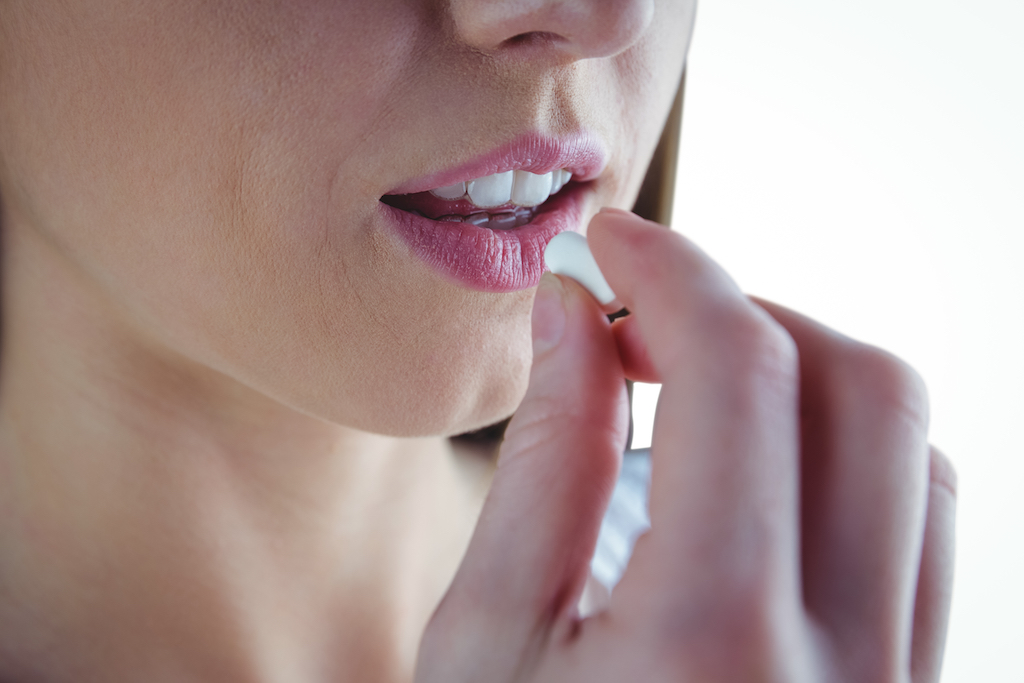In the latest update from the CDC, the agency warns that patients should avoid taking ibuprofen (which is sold under the brand names Motrin and Advil), acetaminophen (which is sold under the brand name Tylenol), aspirin, or antihistamines before their shots. “It is not recommended you take these medicines before vaccination for the purpose of trying to prevent side effects, because it is not known how these medications may impact how well the vaccine works,” the CDC cautions. But don’t worry about not being able to treat some of the symptoms you may feel after your shots. The CDC also says that “you can take these medications to relieve post-vaccination side effects if you have no other medical reasons that prevent you from taking these medications normally.” And for more on the side effects you should be bracing yourself for, check out The CDC Says These 3 Side Effects Mean Your Vaccine Is Working. As noted by the CDC, part of the reason that taking pain relievers right before getting vaccinated is not advised is that there hasn’t been a chance to study the effect it may have. But other health care professionals have shared similar warnings on potential issues, including the University of California Irvine. “Do not pre-medicate,” the UC Irvine experts warn. “In general, pre-medicating with over-the-counter medications that reduce fever or inflammation such as acetaminophen (e.g. Tylenol) and ibuprofen (e.g. Motrin, Advil) before receiving a vaccine may reduce its ability to work and can blunt your immune response to the vaccine.” That’s because “these OTC [over-the-counter] medications work as anti-inflammatories and block a pathway called the cyclooxygenase-2 (cox-2) enzyme,” Ashley Ellis, PharmD, director of clinical operations for Compwell, previously told Best Life. Your body needs these enzymes to be able to produce plenty of “B-lymphocytes, which downstream make antibodies to COVID, the flu, or whichever pathogen the vaccine is trying to protect against.” And for more on what you might be able to expect after your shots, check out Dr. Fauci Says He Had These Side Effects From His Second Vaccine Dose. While research on OTC medications and the COVID vaccine is limited, another study has found that taking ibuprofen or acetaminophen did affect patients’ immune response to the flu vaccine—and there are many similarities between COVID and the flu and how they present in patients. One of the authors of a 2015 study on the subject out of the University of Rochester Medical Center, David J. Topham, PhD, said in a statement that “unless your health care provider tells you otherwise, it’s best not to take pain relievers one or two days before the flu vaccine” because doing so “can dilute the power of the vaccine.” And for more COVID news delivered right to your inbox, sign up for our daily newsletter.ae0fcc31ae342fd3a1346ebb1f342fcb How well the vaccine works can depend on some other factors as well, which may be harder to control than whether or not you pop an Advil. According to a recent study out of Ohio State University College of Medicine accepted for publication in Perspectives on Psychological Science, your ability to develop immunity to COVID as a result of the vaccine may be diminished by stress or depression, which “can alter the body’s ability to develop an immune response,” the study authors note. Fortunately, the same study also found that you could “do some simple things to maximize the vaccine’s initial effectiveness,” including getting “vigorous” exercise and being sure to get adequate sleep within the 24 hours leading up to your shots. And for more on how you can prepare for your immunization, know that If This Happens After Your Vaccine, the FDA Says You Should Call 911.



